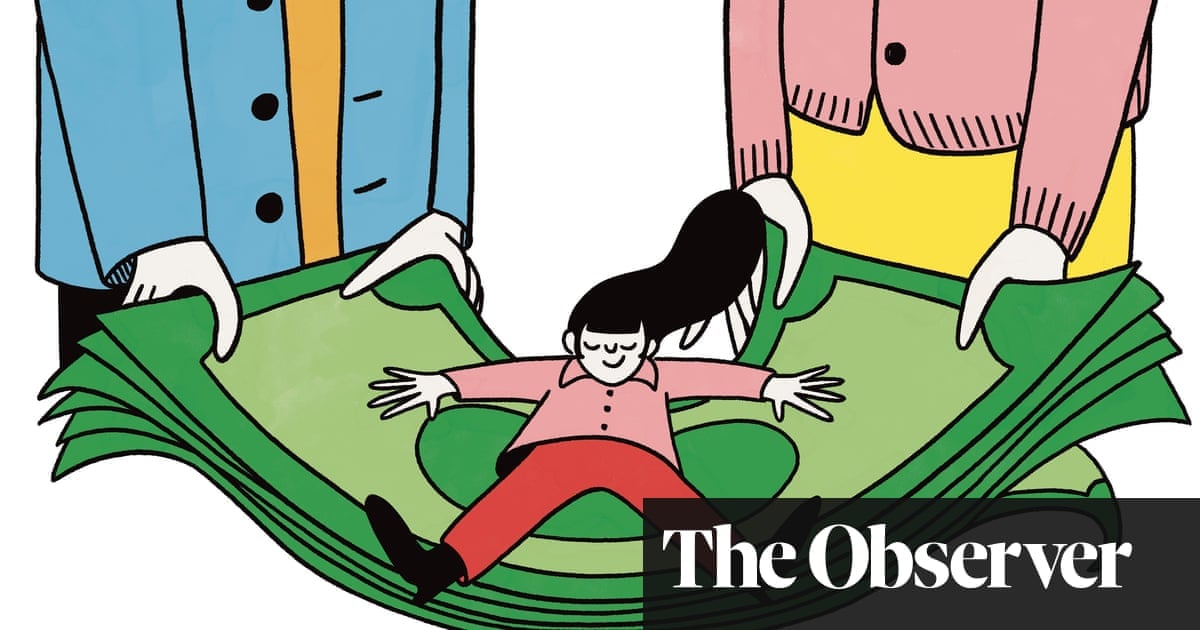- cross-posted to:
- [email protected]
- news
- cross-posted to:
- [email protected]
- news
You know the Bank of Mum and Dad when you see it: it’s your friend who seems broke, but always has a safety net, or who suddenly (but discreetly) acquires the deposit for a home. It’s those who stayed with their parents while they saved for a flat, or stuck it out in a profession they were passionate about even though the wages are chronically low. It’s those who do not need to consider the financial costs of having children. It’s those whose grandparents are covering nursery or university fees, with the Bank of Grandma and Grandad already driving an economic wedge between different cohorts in generations Alpha (born between 2010 and 2024) and Z (born in the late 1990s and early 2000s).
This is the picture we know, but the Bank of Mum and Dad is not just a luxury confined to the 1% – it is also evident in families like mine. I grew up in a working-class household and was the first person in my family to get a degree, but it was the fact my parents had scrimped in the 1980s to purchase properties in London (and allowed me to crash in one throughout my 20s) that has arguably been the true source of opportunities in my life.
In recent years, we have rightly widened the conversation about privilege in society. And yet how honest are we about one of the most obvious forces shaping anyone under 45: the presence or absence of a parental safety net? The truth is that we live in an inheritocracy. If you’ve grown up in the 21st century, your opportunities are increasingly determined by your access to the Bank of Mum and Dad, rather than by what you earn or learn. The economic roots of this story go back to the 1980s, but it accelerated after the 2008 financial crisis, as private wealth soared and wage growth stalled. In the 2020s, rather than a meritocracy – where hard work pays off – we have evolved into an inheritocracy, based on family wealth.



That’s sure not how I think about my own investing. I don’t really care what happens inside an index fund, all I care about is how much money I can get out when I reach my horizon.
I feel pretty safe in assuming you are not a multi-billionaire. I also kinda doubt that you are the principal owner of a business that would come anywhere close to the top tier income tax bracket.
If those are reasonable assumptions, there is no reason why you should be thinking this way at all about your own investing.
I do know that I use 20% of my home exclusively for business purposes, and I count 20% of my housing costs as a business expense. That part of my home is paid out of my revenue (pre-tax) because it is a business expense, and the rest of it is paid out of my income (post-tax) because it is a personal expense.
I also know I have a fairly strong incentive to increase the area of my home dedicated to business purposes, and shrink the area I use personally. It’s the same dollar payment on the same mortgage, the same real estate taxes, but now it’s being made with pre-tax dollars, reducing my taxable income, and therefore my tax bill.
If my income tax rate was 91%, you can safely bet that I’d have no net income after my tax deductible business expenses. That’s the entire purpose of a 91% top tier tax: Force them to actually spend their money, rather than hoarding it, and using it to hoard more.
I suppose that means capital gains tax is lower in your jurisdiction than normal income tax?
For what it’s worth, I’m poor as shit, and my investment account is there but pretty empty, haha.